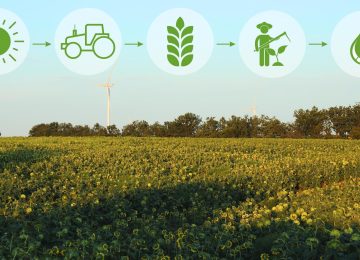The World Meteorological Organization or the WMO has highlighted the urgency of drastic reductions in greenhouse gas emissions and more financing to build resilience, particularly to strengthen early warning systems.
According to the WMO, the year 2024 is on track to be the hottest on record, with greenhouse gas levels at record observed levels, sea level rise, glacier retreat, and extreme weather events causing major loss of life and livelihoods worldwide.
Furthermore, following COP29, WMO will prioritize accelerated action to strengthen global climate mitigation and adaptation, and reduce loss and damage.
Key focus areas include scaling up the Early Warnings for All initiative, advancing Global Greenhouse Gas Watch, and closing gaps in Earth observations.
Additional contributions were announced to the United Nations Systematic Observations Financing Facility (SOFF), which is now capitalized with over $100 million to support countries in closing their basic weather and climate data gaps, the WMO said.
Thought leadership:
António Guterres, Secretary-General, UN, said that while an agreement at COP29 was absolutely essential to keep the 1.5-degree limit alive, “I had hoped for a more ambitious outcome – on both finance and mitigation – to meet the great challenge we face.”
“… this agreement provides a base on which to build and added: It must be honoured in full and on time. Commitments must quickly become cash. All countries must come together to ensure the top-end of this new goal is met,” he said.
“The time for action is now,” said Celeste Saulo, Secretary General, WMO. “If you want a safer planet, it’s our responsibility. It’s a common responsibility, a global responsibility. The COP29 outcome is a gesture of support for the most vulnerable. But much more needs to be done.”
Simon Stiell, Climate Change Executive Secretary, UN said, “.. the new finance goal agreed at COP29 is an insurance policy for humanity.”
“This deal will keep the clean energy boom growing and protect billions of lives. It will help all countries to share in the huge benefits of bold climate action: more jobs, stronger growth, cheaper and cleaner energy for all. But like any insurance policy – it only works – if the premiums are paid in full, and on time,” he said.
Backdrop:
The UN climate change conference concluded with a pledge from developed nations to contribute at least $300 billion annually to support adaptation.
The new collective quantified goal (NCQG) will replace the existing $100 billion goal, which is due to expire in 2025. The agreement was dubbed the ‘climate finance COP’ and aimed to establish a higher climate finance goal. However, developing countries, which had sought over $1 trillion in assistance, said the pledge of financing was too little too late.
Countries agreed on the rules for UN-backed global carbon market, an extension of a program centered on gender and climate change, and support for the least developed countries to carry out national adaptation plans.










